Developing math skills Normal Numbers Worksheets for Ages 4-8
7 filtered results
-
From - To
Develop your child's foundational math skills with our engaging Normal Numbers Worksheets for Ages 4-8, offered by Kids Academy. These expertly crafted worksheets are designed to make learning numbers fun and effective. From counting and number recognition to basic arithmetic, each activity challenges young minds while fostering confidence and enthusiasm for math. As children work through colorful and interactive exercises, they build critical math abilities that pave the way for future academic success. Ideal for home or classroom use, explore our extensive collection to support your child's math journey and instill a love for learning numbers.
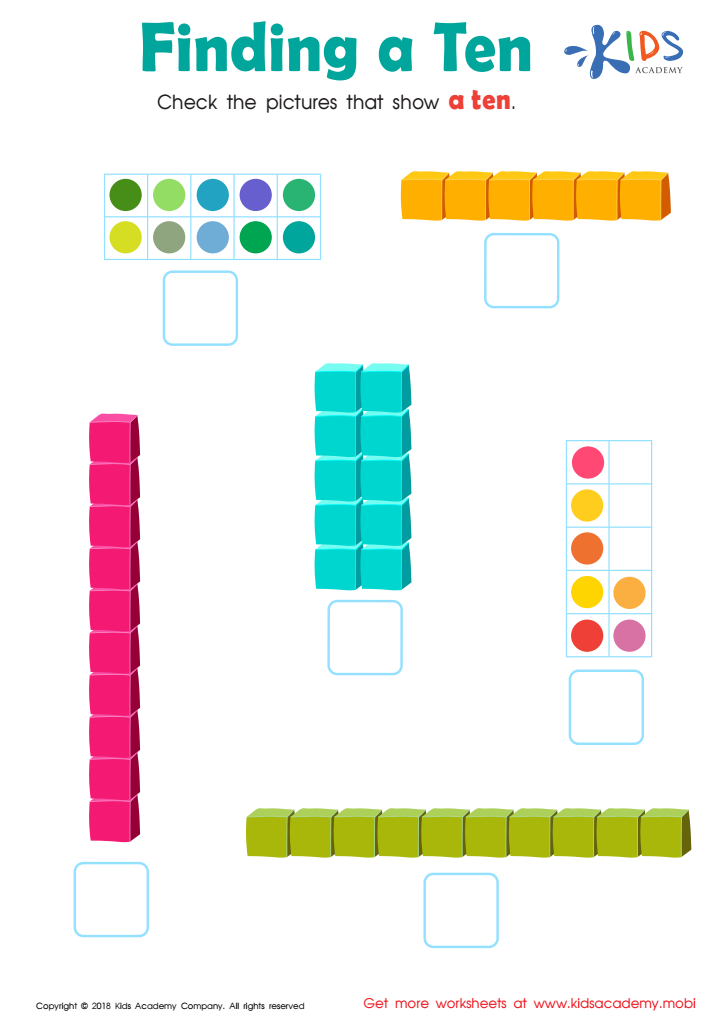

Finding a Ten Worksheet
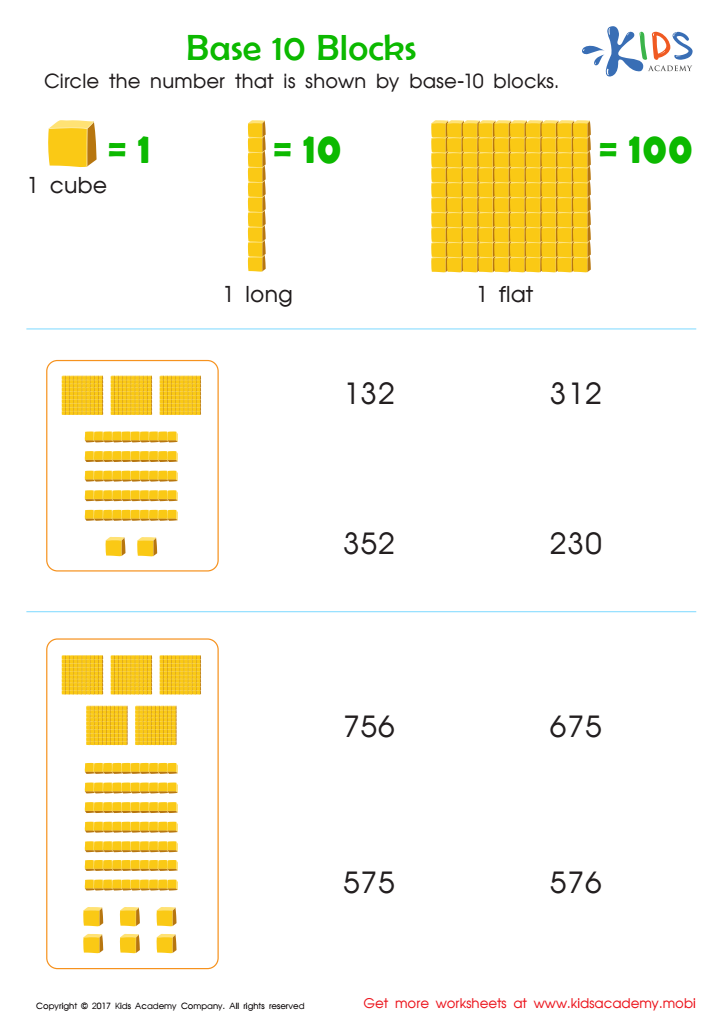

Base Ten Blocks Worksheet
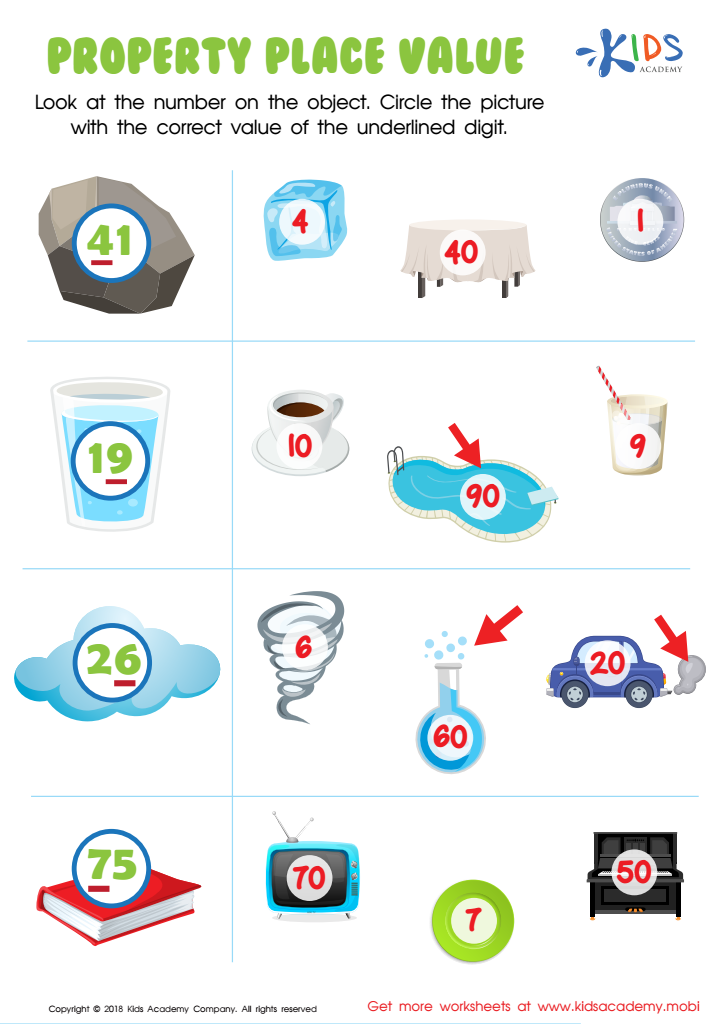

Property Place Value Worksheet
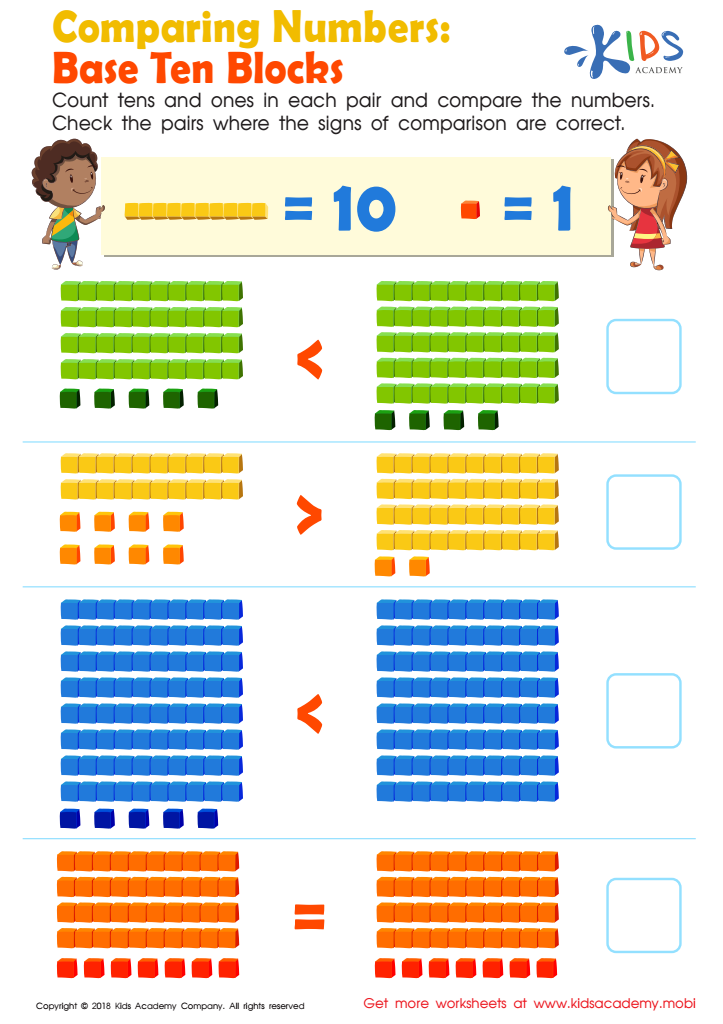

Comparing Numbers: Base Ten Blocks Worksheet
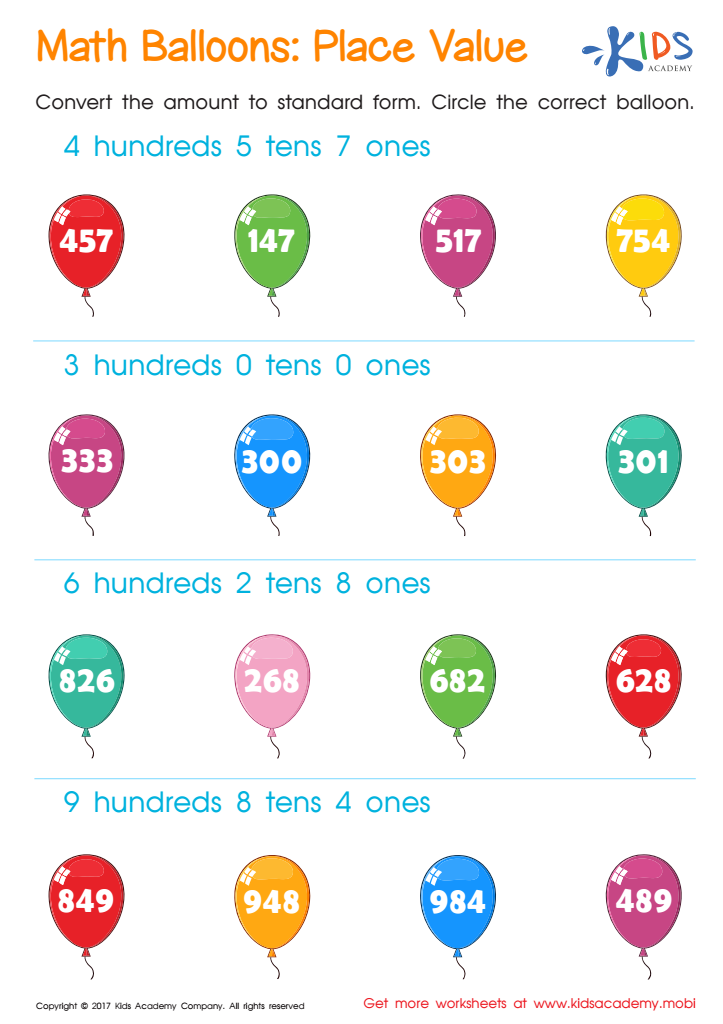

Place Value Printable Worksheet
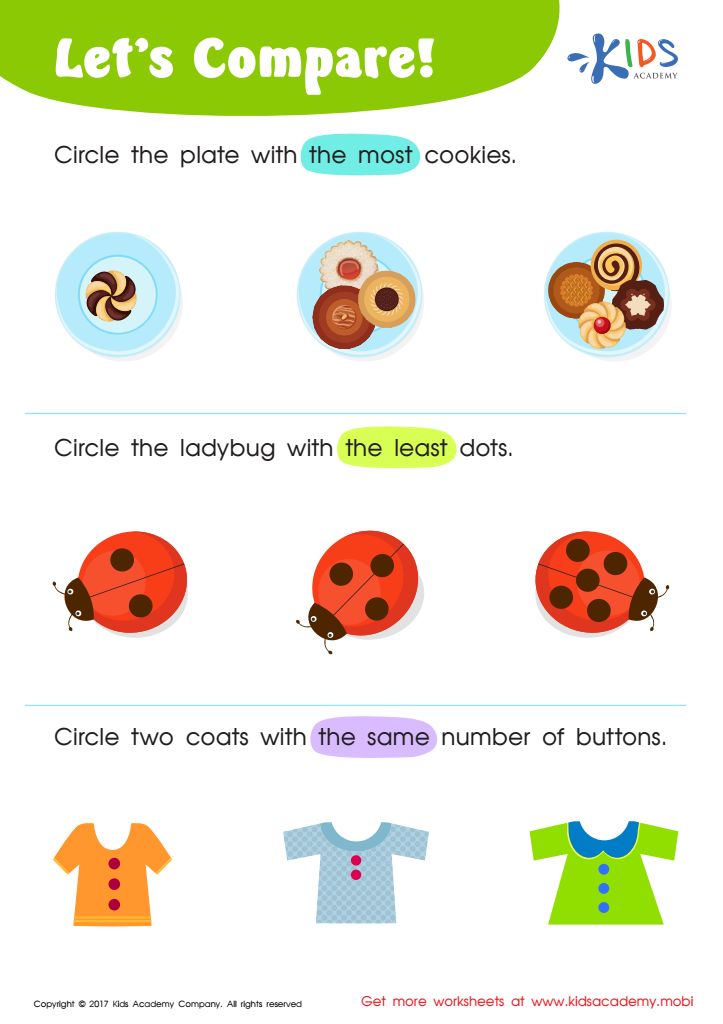

Matching: Classifying Toys by Size Worksheet
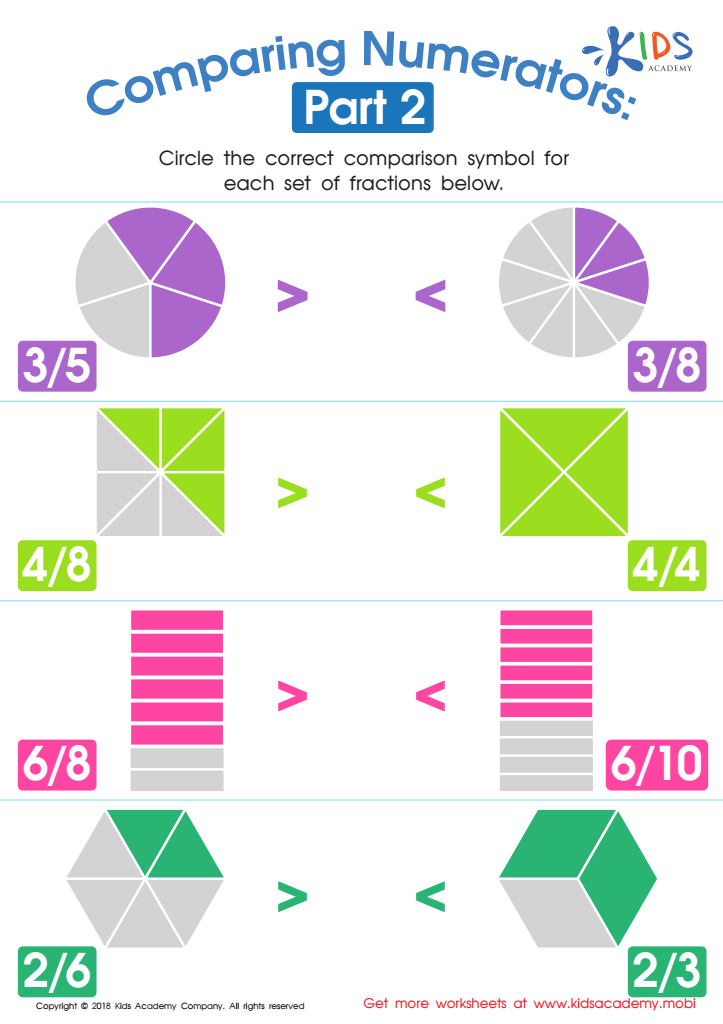

Comparing Numerators Part 2 Worksheet
Developing math skills between the ages of 4-8 is crucial as it lays the foundation for a child's future academic success and daily life competence. During this age, children are highly receptive to learning new concepts, and cultivating basic number sense sets the stage for more complex mathematical understanding. Early math skills, including recognizing normal numbers, counting, and simple operations, foster critical thinking, problem-solving, and logical reasoning.
For parents and teachers, focusing on these early math skills can make a significant difference in a child's confidence and attitude towards mathematics. Numeracy skills are strongly correlated with a child's ability to perform well in other subjects, as mathematics sharpens cognitive abilities and teaches structured thinking. Furthermore, early math proficiency has been linked to better overall academic performance and higher educational attainment in later years.
Incorporating fun and engaging activities that involve numbers helps children develop a positive relationship with math. Storybooks, games, and everyday tasks like cooking or shopping can be used to reinforce these concepts. By ensuring that children develop a strong mathematical foundation, parents and teachers not only support their academic growth but also equip them with essential life skills, setting them up for success in various spheres of life.

 Assign to My Students
Assign to My Students
















